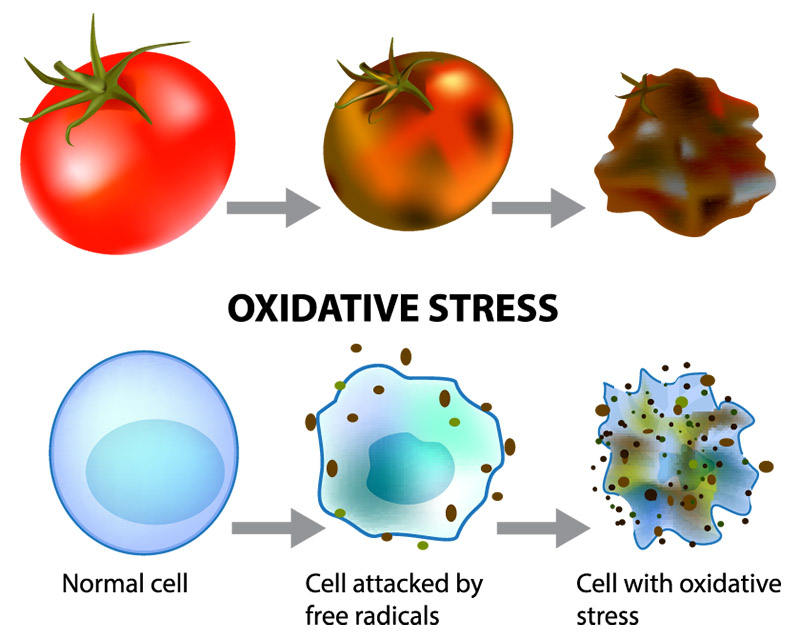- Home
- About Us
- Advanced Testing
- Nutrition & Self-Care
- Further Learning
- New Member Info
- Contact
Coenzyme Q10 is often referred to as the “miracle nutrient.” It is a natural chemical compound we make in our bodies (similar to a vitamin) that plays a significant role in the formation of energy within cells. CoQ10 is found in almost every cell of our body and it acts as a powerful antioxidant. Antioxidants fight harmful particles in the body known as free radicals, which damage cell membranes, tamper with DNA, and even cause cell death. Scientists believe free radicals contribute to the aging process, as well as a number of health problems, including heart disease and cancer. Antioxidants such as CoQ10 can neutralize free radicals and may reduce or prevent some of the damage they cause. One way it does this is by inhibiting the oxidation and modification of LDL cholesterol, thus diminishing the negative effect of cholesterol in our arteries.
CoQ10 resides in our mitochondria (the tiny energy centers in each of our cells), and plays an important role in helping our body produce its’ cellular fuel (called ATP). As your heart muscle consumes huge amounts of oxygen and energy, CoQ10 essentially recharges the energy system in the heart, enabling the heart muscle to pump blood more efficiently (helping with oxygen utilization and energy production, particularly in heart muscle cells).

CoQ10 assists in our overall circulatory and vascular health, but it also has the potential to help combat fatigue, improve muscle function, strengthen our immune system, lower blood pressure, decrease migraines, diminish the risk of blood clot formation, and improve exercise tolerance.
CoQ10 levels can be low in patients with chronic diseases such as ischemic heart disease and heart failure, so these patients may particularly benefit from taking CoQ10. CoQ10 has actually been shown to decrease mortality in patients with congestive heart failure.
Certain medications (particularly statin medications given for cholesterol) may decrease CoQ10 levels and lead to muscle pain, so CoQ10 supplementation may be especially beneficial for patients taking a statin.
Our bodies naturally produce less CoQ10 as we age, so those over the age of 65 may also want to consider supplementation.
Lastly, patients with a known mitochondrial disorder should definitely take CoQ10 to help the cells work more efficiently.
CoQ10 may help with muscle aches and muscle fatigue connected with all of these conditions. Some people note they feel better and have more energy after increasing their CoQ10 levels.
There are many brands and types of CoQ10 on the market and they are not all the same. It is best to get ubiquinol (instead of ubiquinone) because this is the active form that is often better absorbed (especially important for those over the age of 40). Qunol is a popular brand that can be found at most local stores, but even Qunol now makes different forms of CoQ10 . . . so make sure the bottle also says UBIQUINOL on it.
I recommend a starting dose of 100 – 200mg a day. Usually an effective dose is around 1mg per pound of body weight. So if a patient weighs 200 pounds, they would take 200mg of ubiquinol daily. For the best absorption, the daily dose would be divided in half and taken twice a day with food. For higher risk patients (or more significant deficiencies), 300 - 400mg a day may be needed.
A simple inexpensive blood test can measure your levels of CoQ10 to determine if you are deficient. We can then recheck levels later to assess how well any CoQ10 supplements are being absorbed (which helps us determine the ideal dose for each patient).
Low: <0.70 mg/L
Optimal: >1.40 mg/L
*Studies have suggested that serum levels of Coenzyme Q10 greater than 2.0 mg/mL can have a benefit on lowering blood pressure.
CoQ10 appears to be safe and without major adverse effects, but it has not been tested in pregnancy. A possible interaction with the anticoagulant Coumadin has been reported at high doses, so caution should be taken if combined with this medication.
Do something today for a better tomorrow!
Make an appointment now for advanced testing. We are here to help.
REFERENCES
1 – Potgeiter M, Pretorius E, Pepper MS. Primary and secondary coenzyme Q10 deficiency: the role of therapeutic supplementation. Nutr Rev. 2013;71(3):180-188.
2 – Mortensen SA, Rosenfeldt F, Kumar A, et al. The eff ect of coenzyme Q10 on morbidity and mortality in chronic heart failure: results from Q-SYMBIO: a randomized double-blind trial. JACC Heart Fail. 2014;2(6):641-649.
3 – Desbats MA, Lunardi G, Doimo M, Trevisson E, Salviati L. Genetic bases and clinical manifestations of conenzyme Q10 (CoQ10) deff iciency. J Inherit Metab Dis. 2015;38(1):145-156.
4 – Banach M, Serban C, Ursoniu S, et al. Statin therapy and plasma coenzyme Q10 concentrations—A systematic review and meta-analysis of placebo-controlled trials. Pharmacol Res. 2015;99:329-336.